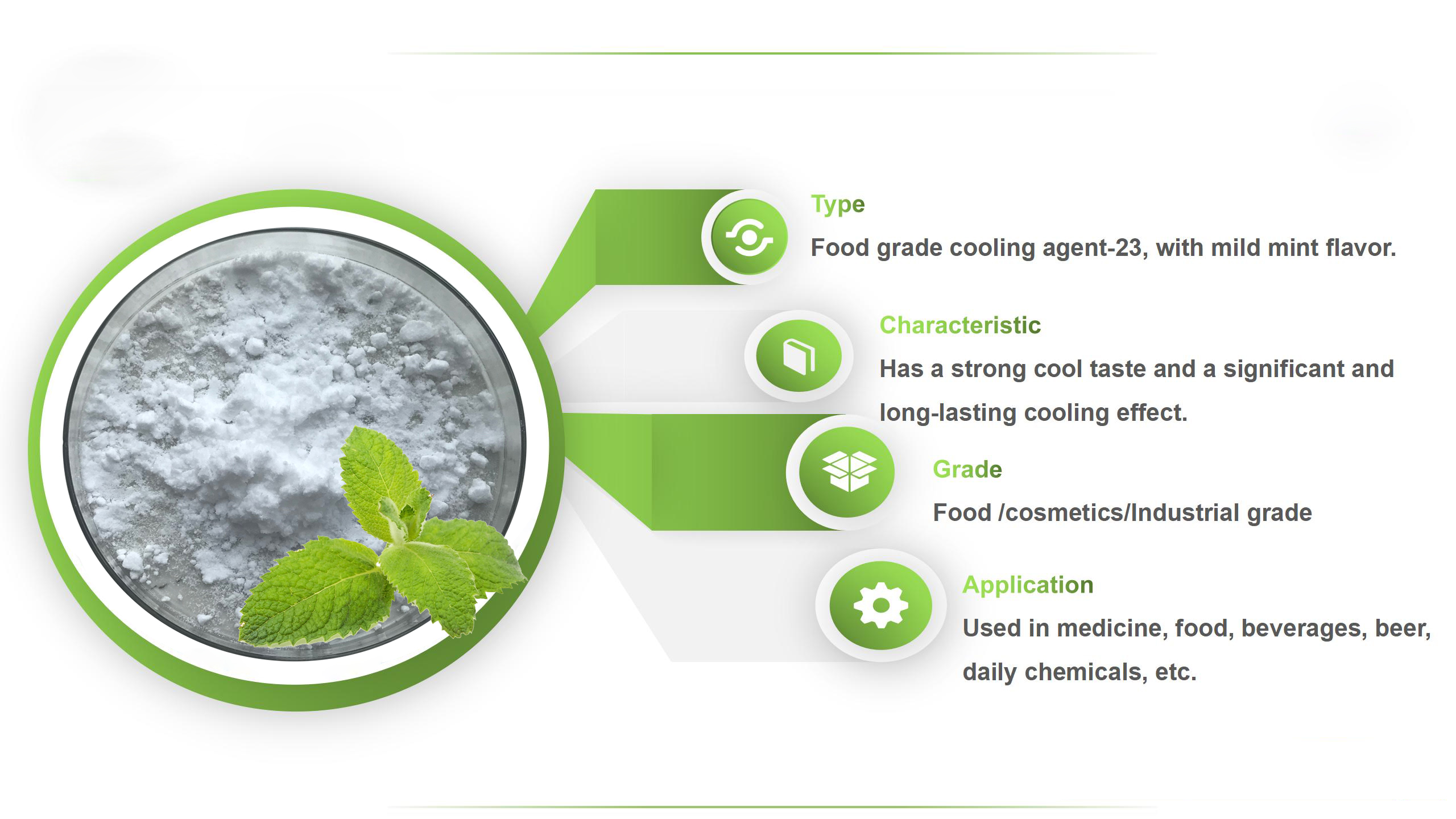WS-23 is a synthetic cooling agent commonly used in the food and beverage industry, as well as in various personal care and pharmaceutical products. It is used to impart a cooling or refreshing sensation, similar to menthol, without the associated flavor or odor. Here are some key points about WS-23, including its effectiveness, potential side effects, and special considerations:
Effectiveness of WS-23:
WS-23 is highly effective at providing a cooling sensation, and it is often used as a substitute for or in combination with menthol.
It is soluble in both water and oil, making it versatile for a wide range of applications.

Side Effects of WS-23:
WS-23 is generally considered safe when used in accordance with established regulations and guidelines. However, like many food additives and ingredients, it may cause side effects in some individuals.
Some people may experience mild irritation, such as a burning or tingling sensation, when WS-23 comes into contact with the skin or mucous membranes. This can vary from person to person.
Allergic reactions are possible, although they are relatively rare.
Special Considerations of WS-23:
Regulatory Approval: WS-23 is approved by various regulatory bodies for use in food and beverages, and its usage is generally subject to established maximum allowable levels, which can vary by region.

Dosage: The appropriate dosage of WS-23 varies depending on the specific application. Manufacturers should follow guidelines and regulatory limits to ensure safety.
Personal Sensitivity: Individuals may have varying sensitivities to WS-23. It’s important to conduct patch tests or perform safety assessments when using WS-23 in personal care products to ensure it doesn’t cause adverse reactions in customers.
If you have concerns about using products containing WS-23 or experience adverse reactions, consult a healthcare professional or reach out to the manufacturer for more information. Additionally, it’s essential to follow regulations and guidelines relevant to your specific application, especially in the food and beverage industry, to ensure the safe and appropriate use of WS-23.
